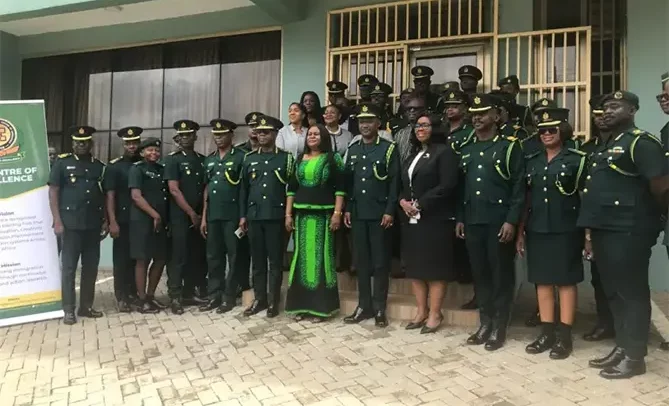The Ghana Immigration Service (GIS) has opened a three-day workshop for its legal officers aimed at strengthening their capacity on Public Contract Management.
The training, organised by the Legal, Research, and Monitoring Directorate, is also expected to empower GIS legal professionals with the necessary skills to ensure legal compliance, improve contract quality, and strengthen internal decision-making across the service.
The workshop, which started on Wednesday, September 24, will end on Friday, September 26, 2025, at the Ghana Immigration Service Centre of Excellence (GISCE).
The training also brought together legal officers from all 19 administrative regions of GIS under the theme “Enhancing Expertise in Public Contract Management.”
The training will feature topics including Contract Management: Expectations of the Ministry, Legal and Financial Compliance in Public Sector Contracts, Contract Drafting and Negotiation Techniques among others.
In his address, Philip Peter Andoh, Acting Comptroller-General in charge of Legal, Research and Monitoring, highlighted the importance of building in-house legal capacity to support sound institutional decision-making.
He said participants will gain insights into best practices for managing public contracts while GIS continues to consult the Office of the Attorney General for review and advice where necessary.
He emphasised GIS’s growing engagement with a broad range of stakeholders, including private contractors, vendors, international partners, and government institutions, all governed by increasingly complex legal agreements.
Helen Akpene Awo Ziwu of the Office of the Attorney General and Ministry of Justice, stressed the critical importance of compliance in public contracting, saying, Public Sector contracts are governed by a matrix of legal frameworks such as the Public Financial Management Act and the Public Procurement Act.
She indicated that every clause, deliverable, and disbursement must align with these frameworks, as even minor non-compliance can result in nullified contracts, financial penalties, or reputational damage.
Comptroller-General of GIS, Samuel Amadu Basintale, also commended the initiative and reiterated the agency’s commitment to legal integrity in its operations.
That, he explained, will help the service build legal capacity as well as prevent future litigation, reduce costs, and enhance its operational efficiency, while assuring staff of its readiness to hold capacity training programmes for various units within the service.
Mrs. Doreen Annan, Chief Director at the Ministry of the Interior, also lauded GIS leadership for the initiative, describing it as timely and strategic.
“In today’s governance landscape, public institutions engage in increasingly complex legal agreements and procurement processes. This demands that our legal professionals stay current with global best practices in contract negotiation and management. I applaud GIS for taking this proactive step,” she added.
By Ebenezer K. Amponsah


